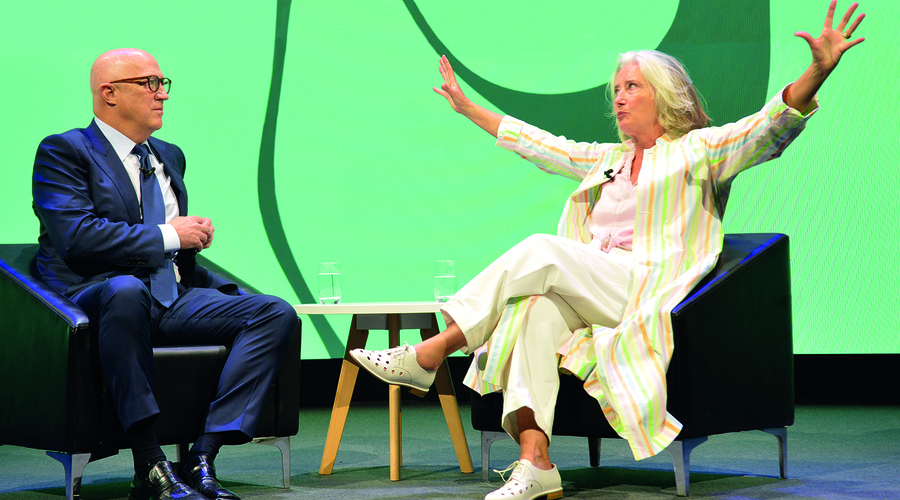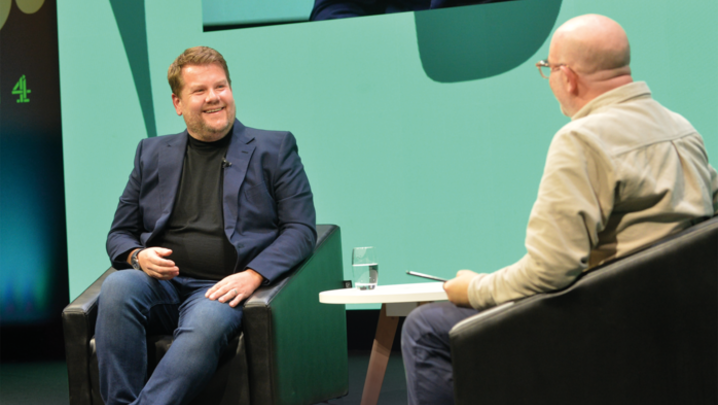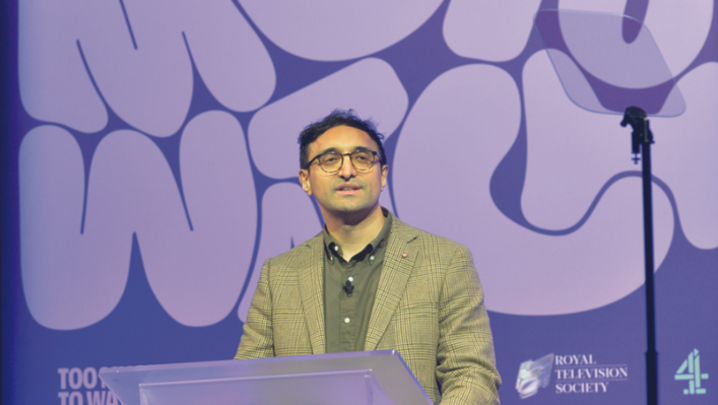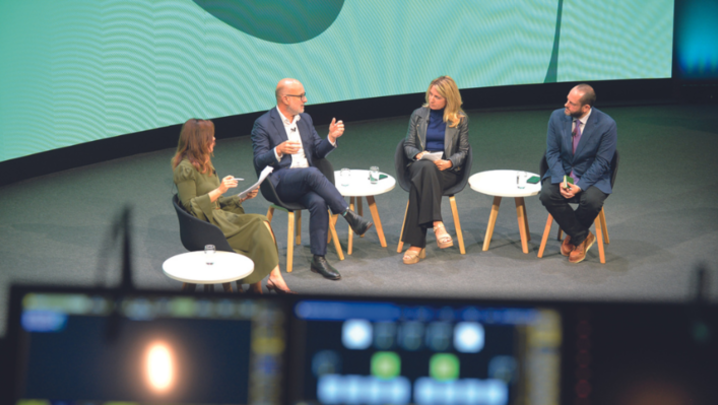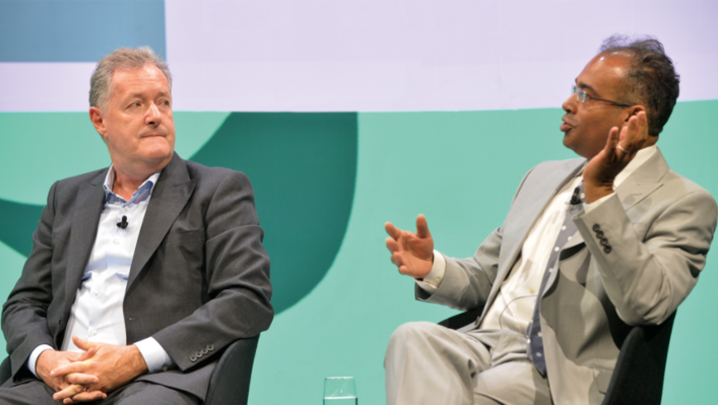The agent extraordinaire and the double Oscar winner discuss why creativity comes first
There was no closer pair of speakers on the stage at Cambridge than Bryan Lourd, co-chairman of Creative Artists Agency (CAA) and his good friend, the double Oscar winner Emma Thompson. This was fitting as the duo discussed the need for creatives and executives to work effectively together for the benefit of all.
Lourd, who, for nearly three decades has been the boss at CAA – whose clients range from Tom Hanks and Steven Spielberg to Ava DuVernay and Zendaya – lamented the existing division he perceives between the creative minds – writers, actors, crew – and the business end of the operation.
He said: “We have slipped in the past 10 years into an executive mentality that has been all about business, about mergers and acquisitions, data and analytics. The people who make the mistake to over-index lose the great opportunity they have of being in this industry to foster ideas.
“A lot of business people have infiltrated our worlds now. The thing I think is dangerous about the time that we’re living in is all the talk of data, algorithms and this analysis of formulae of what people want to see or don’t want to see.”
"When I hear people talk about 'content' it makes me feel like the stuffing inside a sofa cushion"
One problem cited by Thompson was the language used in the meeting rooms, including one particular word: “When I hear people talk about ‘content’, it makes me feel like the stuffing inside a sofa cushion. Content? What do you mean, content? It’s just rude, actually.
“It’s just a rude word for creative people. I know there are students in the audience: you don’t want to hear your stories described as ‘content’ or your acting or your producing described as ‘content’. That’s just like coffee grounds in the sink or something.
“It is, I think, a very misleading word. It [reflects] the way in which the executives speak to creatives, the way in which we have to understand one another and combine better.”
She added that her experience of mentoring a young actor had given her insight into the often strained relationship between talent and executives. “You find your audience by being completely authentic,” she said. “These formulae don’t work… And then you sit there and you watch them and you wonder why, at the end of it, you feel a bit ill.
“I think that’s something else that we don’t talk about as creators in television and film. How does it make us feel inside ourselves after we’ve seen something?
“I want to feel different after I’ve watched something. I don’t want to feel the same way. I want to feel as though I’ve been shifted slightly, even if it’s just my mood or I’ve learned something extraordinary. That is something we just have to keep on thinking about – because it takes you away from this thing of ‘content’. What is the story that you want to hear and that you want to tell that you think will make people feel different, safer, stronger?”
The pair shared how influential TV had been on each of their very different childhoods. For Thompson, the daughter of The Magic Roundabout narrator Eric Thompson and actor Phyllida Law, it was “stuff like The Jewel in the Crown and I, Claudius”.
Lourd compared the thrill of the odd sitcom turning up on one of two channels in the small Louisiana town of his youth. “The world of television has only become more important as we’ve all grown and gotten older,” he said.
He reflected that the need for collaboration between different parts of the industry will become even more important once the writers’ and actors’ strikes are resolved: “There is an urgency on all our parts to take these relationships and partnerships much more seriously, in a way that has never been true before.”
He commended those creatives who already take the business end of the operation as seriously as he does: “Great artists, the ones I’ve been fortunate enough to work with, really do have the part of the brain to say: ‘So, can you explain exactly…’ what we’re up against and what they need, and what they don’t need, then you can factor that into your approach.”
Lourd and Thompson agreed on the need to encourage young people starting out from both ends of the business to diversify and learn a wide range of skills. Thompson spoke of her own career, in which she’d had the chance to try everything from comedy to tap dancing to period drama.
Lourd compared this with today’s model: “Nowadays, people tend to hit so early on TikTok or YouTube, and we all take them down some road and expect them to be a certain thing; if there aren’t good executives, if there isn’t good infrastructure around them, we’re all going to miss out on what could turn into a very versatile artist who has certain different colours.”
Thompson recalled her own encounter with a well-established star at the height of his fame on a long-running hit TV comedy: “I can remember going on and doing a tiny part in Cheers when I was in my twenties and I remember meeting Ted Danson. He was one of the nicest people in the world, and one of the most unhappy, because he’d been doing it for so long. And I remember looking at him and thinking: ‘Why are you so unhappy?’ It was because he wanted to be able to do other things, but this had defined him for such a long time – he couldn’t get out of it.”
Finally, Lourd proved he is putting his own deep resources where his mouth is, making CAA a company where “you could start as a person out of college on a training programme, and work in any area you wanted to” – and also creating a school to help young people in his native Louisiana as well as in New York.
“I grew up in a small town and 567 people graduated from my high school; 27 went to college and three people went out of state, and everyone else stayed. So most of the people who didn’t go to college were the beneficiaries of the trade schools, where they taught the oil industry, farming, the things that were in my part of the US.
“At our business in Los Angeles, there wasn’t a proper school for ninth to 12th graders to learn all the below-the-line trades, and so a group of us started this school a year and a half ago, and we partnered with the union IATSE (International Alliance of Theatrical Stage Employees).
“As kids graduate, they will be able to go into internships and into one of the nine other divisions. It’s in Louisiana and it’s in New York as of two days ago; it’s fun, it’s the most satisfying thing we can possibly do.”
In Session Thirteen, the Co-Chair of Creative Artists Agency, Bryan Lourd, was in conversation with actor and screenwriter Emma Thompson. The producer was Helen Scott. Report by Caroline Frost.

